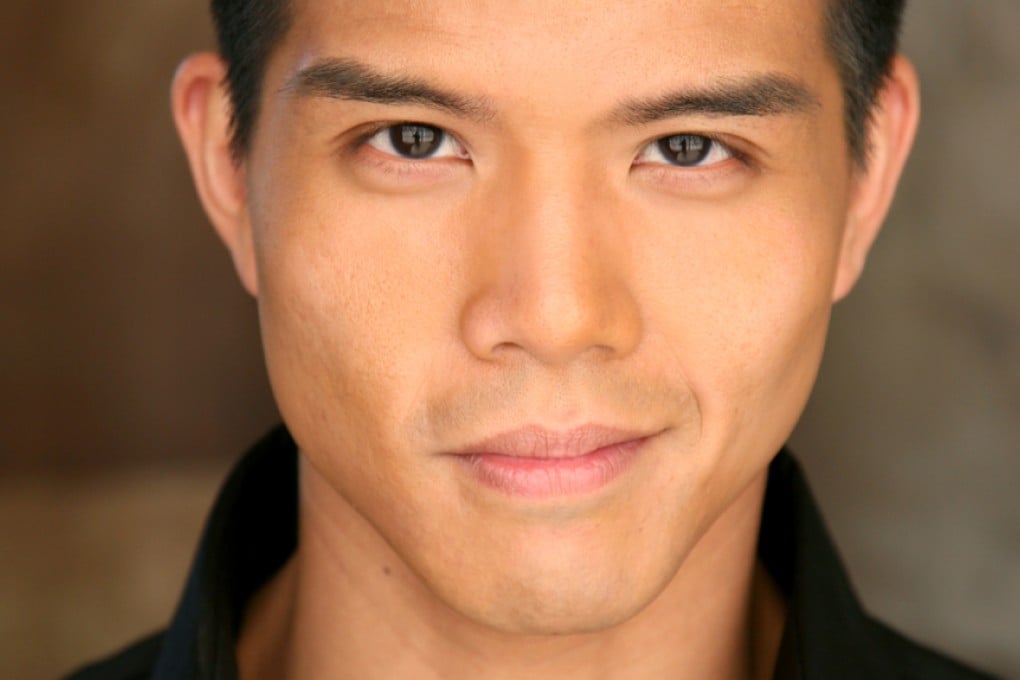Telly Leung
The Broadway actor tells Kavita Daswani how he won over his traditional Hong Kong parents and turned his hobby into a career.

THE AMERICAN DREAM My parents immigrated to New York from Hong Kong in 1975. They came with two suitcases and US$250, and depended on the kindness of friends in Chinatown. They were hard-working and blue collar, and saved every penny they made. My mother worked as a seamstress and my father as a dishwasher. I was born in Brooklyn. My parents had only one child because they could only afford one. Like every other Chinese immigrant, they dreamed I would be a doctor, lawyer or engineer. They had many dreams for me, but none included show business. My parents go back to Hong Kong all the time, to see relatives there and in Guangzhou. My mother is one of five, my father one of 17. We have family everywhere. I have only been to Hong Kong twice, aged 11 and 19.
LEARNING STORIES To my parents, success means monetary success; the American dream means dollar signs. So I knew to study hard. I went to Stuyvesant High School, where the focus is on maths and science. More than 60 per cent of the students were Asian. I quickly realised that while I was very good at school, I didn't love it. I didn't wake up and look forward to physics. But I loved going to rehearsals for the high school musical I had joined as an extracurricular activity. I didn't see the world as a giant equation. I saw it as stories. That's when I started leaning towards the theatre as more than a hobby.
LUCKY BREAK When it came time to choose a college, I promised my parents I would get a 'real' degree. But in the end I decided to go to Carnegie Mellon for its theatre programme, one of the oldest in the country. It took some convincing to get my parents on board. A week before my deposit was due, I brought my very Chinese mother to visit the school. She sat in on a class, watched students do a scene and in that instant I think she got a taste of why I loved it so much. My parents supported me during my four years there - it was incredibly difficult but also so rewarding. Out of thousands of applications to the Carnegie Mellon theatre programme, they only take 12 or 15 a year, so I felt very lucky. It is an expensive college and I worked hard because I needed to prove something to my parents.
GOOD STOCK I joined my first Broadway show in 2002, before I even graduated. It was the revival of Flower Drum Song, the Rodgers and Hammerstein musical. Lea Salonga starred in it. It was an all-Asian theatre company and a Chinese-American story that takes place in San Francisco. There aren't a lot of Asian faces on Broadway, so we were a tight-knit family. Lea is like a big sister to me. My mother was with me when I got the call. She said to me, 'I think of children as stocks in the stock market. You put money into it, and the stock goes up. My stock went up today.' That night, we opened a bottle of Dom Perignon that my parents had saved from their wedding, waiting for the right occasion. She came to the opening night of Flower Drum Song and said, 'Wow, you can actually make a living doing this.'
GETTING WICKED After that, I performed in a revival of Stephen Sondheim's Pacific Overtures, which ran at Studio 54. It was a dream come true to work with a living legend; Sondheim is a demigod in the world of Broadway. After that, I went to work on Wicked in Chicago. Back then, in 2005, we were only the third theatre company to do it. Now it's a mega-hit all over the world. The person who cast me in Wicked said, 'I saw you in Pacific Overtures, and that's when you got the job.' The biggest lesson I've learned is that you never know when you're auditioning. That's what I tell young actors - to treat every opportunity like an audition, whether they are performing for three people or 30,000, always do your best.
MAKING RENT After I did Wicked from 2005 to 2006, I was homesick for New York. I did a regional production of Godspell at the Paper Mill Playhouse in New Jersey, and then talks began for bringing the show back to Broadway. While those gears were turning, I went to do Rent on Broadway. That really was the rock musical of my generation. As a kid, I saw it more than 20 times, and it was amazing for me to go from being in the cheap seats to being on the stage. We toured with it, went to Tokyo and Seoul, so I got to see some of the world. During all this time, Godspell had worked itself out, we were ready to go, with full-page ads and signs all over the city. Six days before we were due to start rehearsals, we lost our funding. It felt like the lowest of lows, like one of those horrible showbiz stories you hear about. But it all happened for a reason. I went out on the road, did Glee, performed at the Hollywood Bowl. Last year I started hearing that Godspell was going to happen again and I wanted to do it because I wanted the story to have a happy ending. It's doing so well. But for me, my goal has always been to work and put three meals on the table; to pay my bills doing what I love. I have my parents' work ethic. To me, they are the American dream.